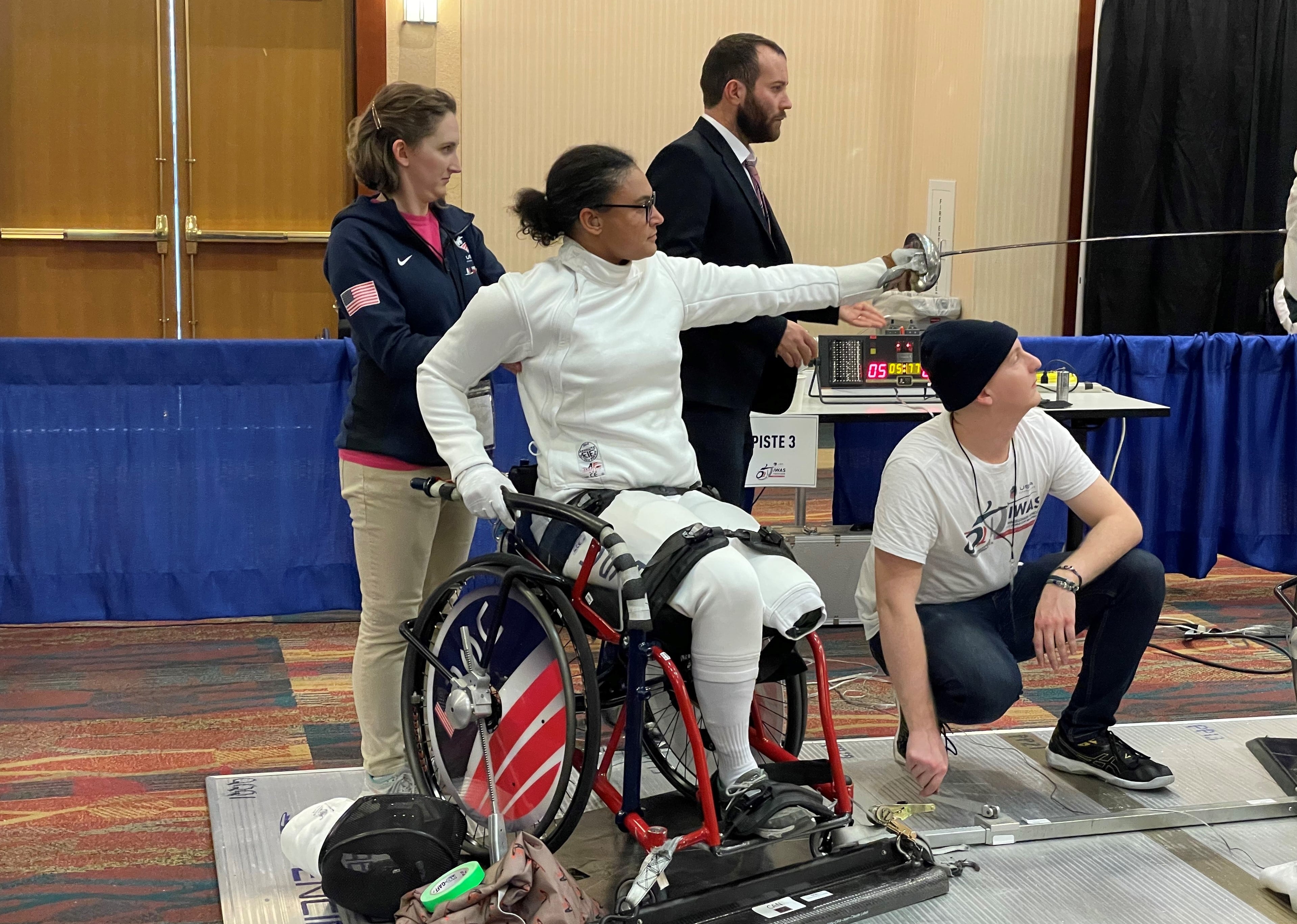As she lunged against her opponent, quickly recovering, then parrying another attack, Marine Corps veteran Jataya Taylor was reminded of how far she had come since she’d first held a sword.
“In the military, they train you so much that it’s just a natural reaction,” she told Military Times. “You don’t have to think about it, and so with fencing the same thing occurs.”
Taylor, 37, from Aurora, Colorado, was injured in a pair of training accidents that ended her hopes of a lifelong military career and eventually led to the amputation of her left leg. Just last year, with help from a VA recreational therapist, the former service member found a new purpose through the uncommon sport.
Earlier this month, Taylor joined more than 100 athletes from around the globe at the Wheelchair Fencing World Cup in Leesburg, Virginia — the first time the competition was held in the U.S. since 2003 — where she hoped to eventually earn a spot on the U.S. national team and compete at the 2024 Paralympics in Paris.

Wheelchair fencing — also known as parafencing — is a unique sport that was introduced to the Paralympic Games in Rome in 1960. Athletes are strapped into wheelchairs, which in turn are fastened to a plate on the floor. They compete in categories depending on the level of their permanent impairment, using one of three types of swords to score points against an opponent.
“I love it because no matter where my health takes me now, I know I can still do this,” Taylor said.
Although she was hesitant at first to give fencing a try, another military veteran encouraged Taylor to go for it.
Best known as “Mama T” by her teammates, retired Sgt. 1st Class Patricia Dykes, 59, from Fort Collins, Colorado, is a former Army paratrooper who has been fencing for over 40 years. A series of medical issues that she said occurred both during and outside her military career, including traumatic brain injury, spinal problems and partial deafness, have forced the former soldier to now fence from the chair.
But by no means has it stopped Dykes from pursuing her passion.
After an extensive career as an advanced Army medic and X-ray technician, including an assignment in Panama, Mama T began competing internationally in wheelchair fencing in 2014.
“I’m all about, can I kick down a door and let someone else fence,” she said.
Jonathan is a staff writer and editor of the Early Bird Brief newsletter for Military Times. Follow him on Twitter @lehrfeld_media





